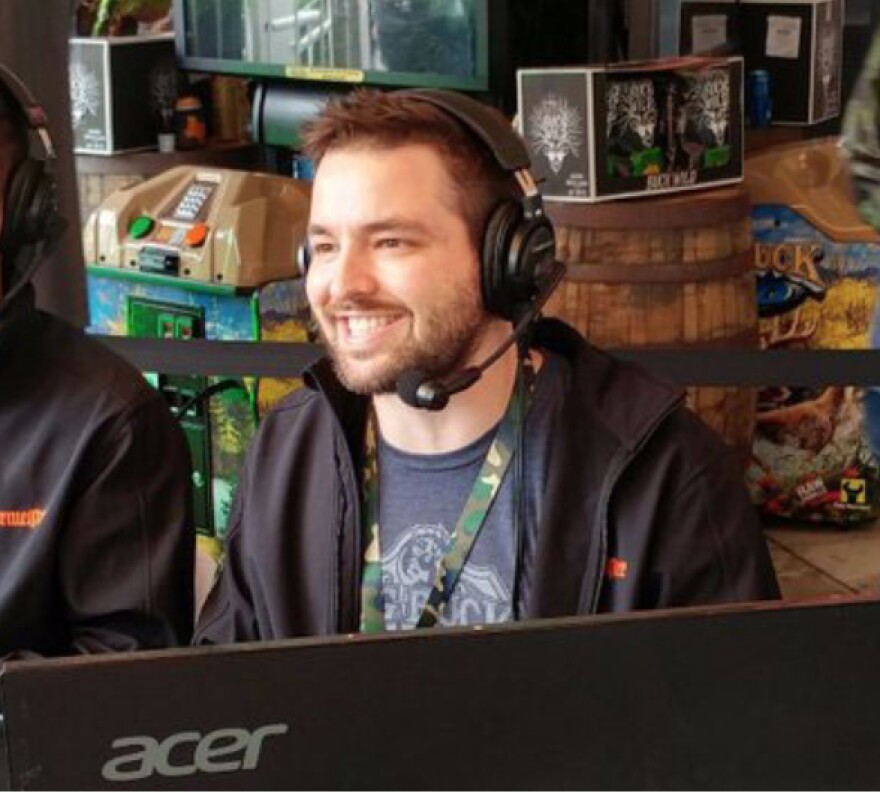Illinois Wesleyan University has a new sports coach, but it’s not the kind of sports you’re thinking of.
Callum Fletcher is the new head coach of IWU’s esports program. The program itself is new and will need to be built from the ground up as Fletcher settles into his role.
“The program is being built up from scratch, so we currently don’t have a varsity-level team,” Fletcher said. “That starts in 2018. So my biggest responsibility will be recruiting (the team for next year).”

Fletcher described esports simply as competitive video gaming. Esports began to take its place in society in the early 2000s and began skyrocketing in popularity by the late 2000s. Fletcher said it’s only getting bigger from there.
IWU’s program will focus on “League of Legends,” a multiplayer online battle arena where the main objective is to destroy the other team’s home base before they destroy yours.
“It’s a lot more complex than that,” Fletcher said. “I’ve been playing for about six years, and there’s still things I’m picking up and going, ‘What? I didn’t know that!’ Fortunately, that’s my role as the coach, is to make sure my players do know that. (But) it’s intense. The games can last anywhere from 15 (minutes) to an hour.”
Fletcher held tryouts for his esports team Sept. 26-27. IWU senior and computer science major Drew Litherland said tryouts like this can be a little intimidating for new players.
“If you’re completely new, it (can) be a really intimidating experience because these players put so much time into it,” Litherland said. “They’re just so much better. I’m a new ‘League of Legends’ player, so if I see somebody who’s been playing for seven years, and he’s got a really high rank and is really fast on the keyboard, it seems like, ‘Oh, I’m so far behind. I doubt I’ll catch up.’ But it’s still fun.”
Fletcher got his start in competitive gaming at a young age but didn’t begin competing until he was a teenager. It was his first competitive tournament in 2008 that made him realize esports was his future.
"It's a safe place for students to come and have connections with people and be a part of something bigger than them."
“That was just the catalyst that made me go, ‘This is where I belong. This is what I want to do.’ So I went home and practiced and got as good as I could, and I kept on competing,” Fletcher said. “And it evolved from being a competitor to, ‘OK, I don’t really have time to compete anymore, so I’m going to get into the administrative side of things.’ And here I am today.”
Building an Esports Community
But the path for Fletcher wasn’t exactly that clear cut. He graduated from Western Illinois University with a degree in law enforcement and justice administration and a minor in homeland security—a far cry from his current career in esports.
Instead of pursuing the career he went to school for, Fletcher decided to intern with arcade studio Play Mechanix. Two and a half years later, he came across the position at IWU, and the rest is history.
“It’s one of those things where you sit there and say, ‘Oh, my god, that’s perfect for me.’ … I jumped on it the second I saw it and was fortunate enough to secure the role,” Fletcher said.
While Fletcher’s biggest responsibility will be recruiting 12 players from around the world, he is also involved in the building of an esports arena on campus and wants to create an esports community that is open to everyone.
“We have a really diverse population at Wesleyan, so the fact that students can come from China or Europe or anywhere in the United States and instantly have people that they share the same passions with, it naturally creates connections,” Fletcher said. “Which I think is incredibly important when you’re going away to school.”
Currently, there are approximately 40 collegiate varsity-level esports programs and around 600 clubs throughout the United States. Fletcher can see those numbers rising more and more throughout the next few years, but he doesn’t see an end in sight.
“I don’t think there’s an end goal with esports because it’s constantly growing,” Fletcher said. “The goal is always to get bigger and better, and to me, that means inclusivity, diversity, and it means growing in numbers consistently. (It means) it’s a safe place for students to come and have connections with people and be a part of something bigger than them.”
WGLT depends on financial support from users to bring you stories and interviews like this one. As someone who values experienced, knowledgeable, and award-winning journalists covering meaningful stories in central Illinois, please consider making a contribution.




